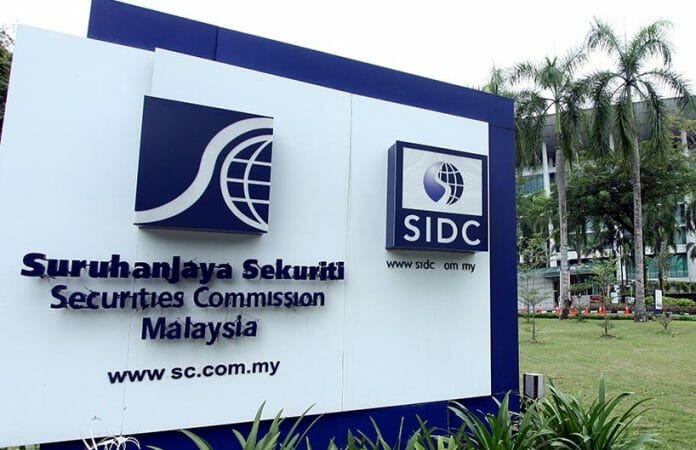With an acknowledgement there are some extremely pressing challenges on humanity today, and concerns of economic recovery shared by every government, the Securities Commission Malaysia (SC) suggests sizeable amounts of funding are required for critical global challenges, coupled with existing and planned initiatives to reduce economic and social disparities.
Addressing the 4th Islamic Sustainable Finance & Investment Asia Forum today, Securities Commission Malaysia Chairman Dato’ Seri Dr. Awang Adek Haji Hussin said he believes that the Islamic capital market, or ICM, is well-suited to contribute towards addressing the funding gap for the Sustainable Development Goals (SDGs), as well as climate and other sustainability issues.
This is due to its emphasis towards ensuring wider societal benefits, and promoting inclusiveness, which are core Shariah principles. ICM can, and must, be mobilised to scale up towards meeting global sustainable development needs and climate initiatives. In his speech, he adds the focus of the UN General Assembly this year is on “solutions through solidarity, sustainability and science.”
And According to the United Nations Intergovernmental Panel on Climate Change – the UN IPCC, global warming has already reached 1.1 degrees Celsius above pre- industrial levels, the warmest in 125,000 years. The effects that had long been predicted are now occurring, such as shifting weather patterns, melting glaciers, rising sea levels, and devastating floods.
In light of this, the UN estimated that climate change adaptation financing for developing countries alone will cost USD 127 billion per year by 2030, and higher by USD 295 billion per year by 2050.
Dr. Awang Adek cited that to make matters worse, COVID-19 has set back efforts to achieve the UN SDGs by 2030. Estimates suggest that the impact of COVID-19 on SDG financing needs in developing countries is expected to increase the funding gap by 70% post-pandemic.
“The ICM only requires solidarity and shared purpose, among Islamic market practitioners and countries, to encourage greater Islamic finance innovation in tackling pressing global issues. In fact, this was one of the key discussion points at the SC’s annual thought leadership roundtable with the United Kingdom’s Oxford Centre of Islamic Studies, held earlier this month.
“It was attended by eminent Islamic finance scholars and practitioners,” said Dr. Awang Adek, adding, they noted how Maqasid al-Shariah, or the objective of Shariah, is both manifested and embedded in sustainable practices.”
Initiatives by the SC such as the SRI Sukuk Framework, Waqf-Featured Fund Framework and the SRI-linked Sukuk Framework, which integrates Shariah and SRI, facilitate product innovation for issuers and investors and have gained market traction.
It is developmental success such as this that underscores the vast potential for Islamic Finance to serve the common good of society.
He added, indeed, Malaysia’s decades-long experience in Shariah products and services, highlights three critical pre-requisites for continued market and industry evolution. These are:
i. A facilitative regulatory framework — required to promote the development of Islamic social, sustainability and green products. This will ensure an available pool of Islamic financial instruments that is ready to support the global ‘call to action’;
ii. A supportive ecosystem — resources and ecosystem is required to ensure continued innovation. These are key pillars of the SC’s SRI Roadmap for the Malaysian Capital Market, which outlines 20 recommendations to accelerate the sustainability agenda.
iii. Like-minded partners — the collective involvement of like-minded parties is essential to address multi-stakeholder issues and barriers to growth that may arise. In Malaysia, we have been blessed with supportive ministries and government agencies, as well as good working relationships with other regulatory authorities.
We have also benefitted from the technical capabilities and dedication of a strong pool of Shariah advisors, experts and industry players. This has allowed Islamic finance to prosper domestically and gain strength regionally, he added.
“From a regional perspective, most Southeast Asian countries have pledged their commitment to work towards net zero carbon emissions. ASEAN governments have also signalled their desire to undertake sustainable development, encompassing measures across the economic, social, cultural, physical and environmental spectrum.
“The ASEAN Capital Markets Forum (ACMF), of which the SC is a member, leads the development of sustainable finance within the region, as well as an ASEAN sustainable asset class. The ACMF is also actively involved in developing the ASEAN Taxonomy for Sustainable Finance, which seeks to identify sustainable economic activities and attract sustainable investments and funding to the region,” he said.
The ACMF is also instrumental in the introduction of a set of ASEAN Green, Social and Sustainability Bond Standards in 2017 and 2018. These standards are aligned to globally accepted principles and guidelines.
“As such, I urge market stakeholders here today to ensure that existing, as well as new, Islamic social and sustainable finance instruments, continue to be effective in channelling funding and investments. In terms of Islamic social finance, Islamic funds with Waqf features are a potential emerging product class. In an effort to spur such innovative funds, the SC introduced the Waqf-Featured Fund Framework in 2020. This provides investors more opportunities to invest and contribute towards socially impactful activities, said Dr. Awang Adek.









